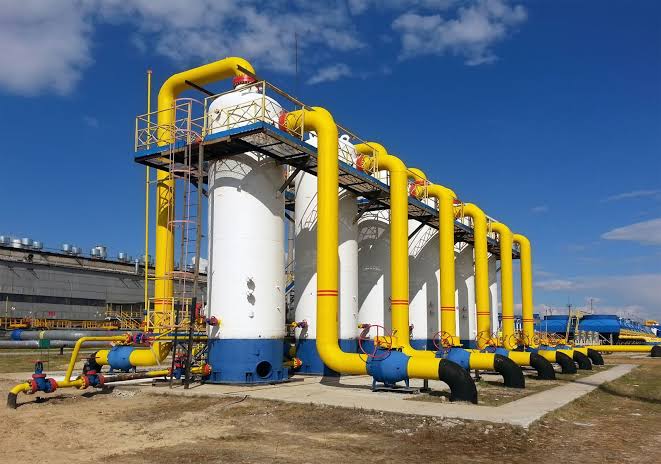Nigeria and Germany have agreed on a deal for Africa’s largest gas producer to supply more gas to Germany while in return getting an Investment of $500 million in renewable energy projects.
Nigeria’s President, Bola Tinubu since assuming office in May, has been working to attract foreign investors to the country. Nigeria is currently viewed as Africa’s largest economy.
The new deal points to his reforms on fuel subsidies and currency controls as incentives.
Over the past year, events in Europe made it quite clear that envisioning a future may be a noble thing. However, energy needs are immediate.
Natural gas is perfect for meeting them. This is because of lower emission footprint than fossils and coal.
The historic deal comes amid pressure on Europe to secure alternative gas supplies. This is after Moscow imposed sanctions on European subsidiaries of state-owned Gazprom in the wake of Russia’s invasion in Ukraine.
Russia already cut off supply to Bulgaria and Poland. Many countries in Europe are racing to fill dwindling gas reserves.
Likewise, It also placed sanctions on the owner of the Polish part of the Yamal-Europe pipeline that carries Russian gas to Europe.
Also Read: Africa – Europe Trade: Nigeria’s Access Bank Ventures in France to Boost Investment
Nigeria’s Energy Deal
In a Memorandum of Understanding (MOU) signed by Nigeria’s Riverside LNG project, which works in the country’s Niger Delta, and Germany’s Johannes Schuetze Energy Import.
Nigeria will export 850,000 tons of liquified natural gas (LNG) per year to Germany. This will be increasing in the future to 1.2 million tons.
The first deliveries will represent 2% of Germany’s total LNG imports. The deliveries will leave Nigeria in 2026.
“This is a further step towards diversifying German gas imports,” said Johannes Schuetze, chairman of the German gas importer, of the historic first ever gas deal between Africa’s most populous country and Europe’s biggest gas consumer, signed at the G20 Compact with Africa conference in Berlin.
In return, the Union Bank of Nigeria and the DWS Group also signed a deal for the German firm to invest $500m in renewable energy projects in Nigeria.
The technology projects in Nigeria, aim to bring more people into the formal economy.
At the same time, Germany is also in talks with electronics giant Siemens to help Nigeria, which experiences frequent power blackouts, to improve electricity supply, according to German state broadcaster Deutsche Welle.
German Chancellor Olaf Scholz pledged more investments in Nigeria’s critical minerals and energy sectors during talks with President Bola Tinubu in Abuja in October.
Also Read: Pricepally Secures $1.3M Funding for Nigerian Grocery Expansion
Nigeria Gas Volume
Nigeria is listed among ten global countries with biggest gas reserves. According to a report, it came after the United Arab Emirates, with natural gas reserves of 5.85 trillion cubic meters.
Likewise, Nigeria holds the largest natural gas reserves on the continent. According to BP’s estimates in its June 2022 Statistical Review of World Energy. Nigeria ranks sixth globally among exporters of liquefied natural gas (LNG) in 2021
In 2022, the Countries natural gas exports amounted to some 32.2 billion standard cubic meters. The values represent a decrease compared to the previous year.
The country has proven natural gas reserves reaching approximately 5.91 trillion standard cubic meters as of 2022.
Currently, some countries have substantial gas reserves. This countries are dominated overwhelmingly by OPEC members. Saudi Arabia, the UAE, Nigeria, and Venezuela.

